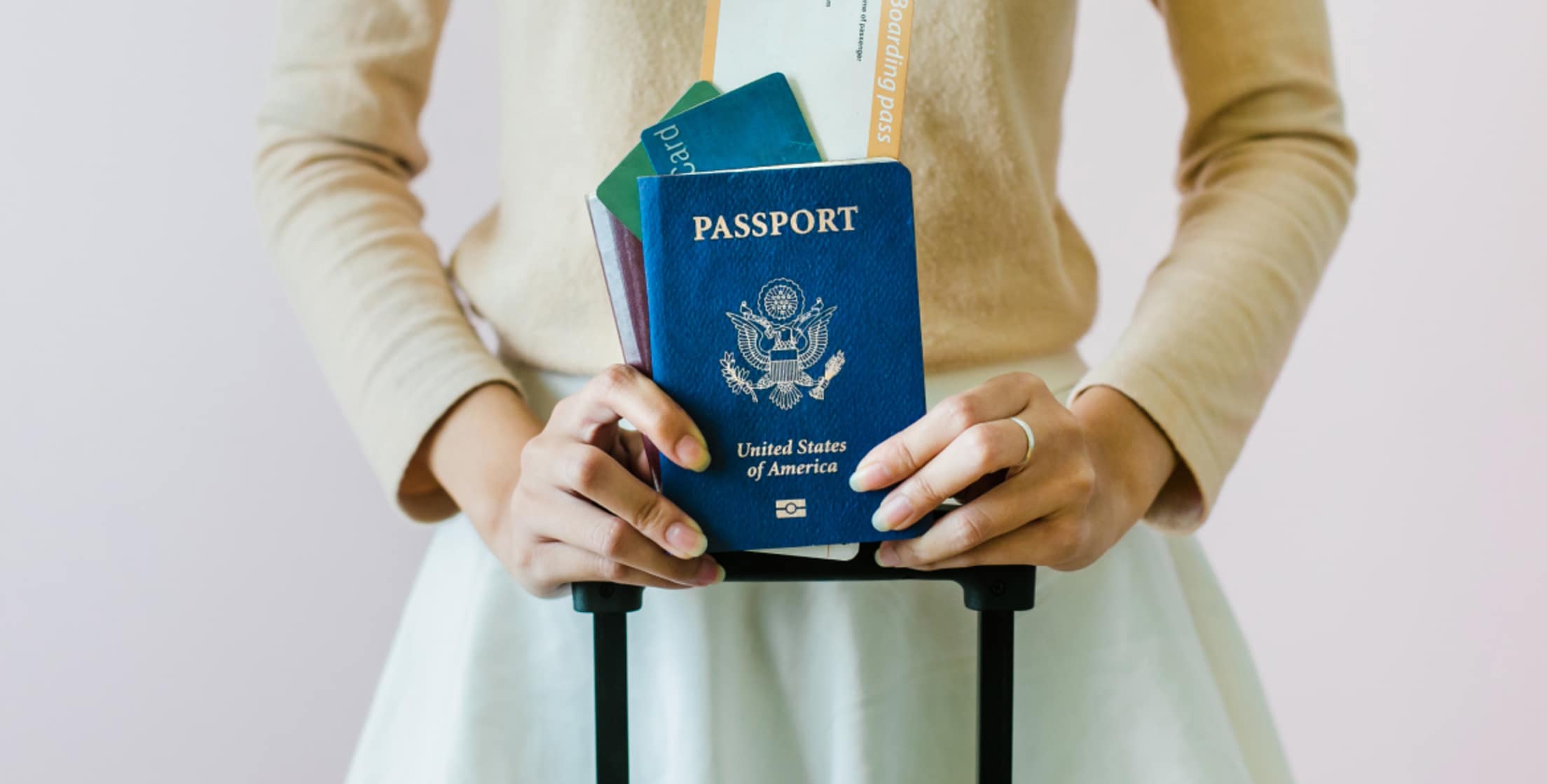7 Ways to Protect Your Passport While You Travel
If your passport is stolen, you could face travel delays and even identity theft. Get expert tips for keeping your passport safe as you travel.

Some passports (like ones from the United States) allow the owner to travel to almost any country in the world, making them especially desirable to criminal organizations. From identity theft to financial crimes, there are numerous ways your stolen passport information can be put to use.
Keeping your passport safe from theft is important for your identity protection. Read on to learn how to keep your passport out of the wrong hands.
Why Passport Safety Is Important for Identity Protection
Just like your Social Security card, it’s extremely important to keep your passport safe. If your passport (or passport number) is stolen, it could end up for sale on the dark web and be used for identity theft and other fraudulent activities.
Passport fraud can be used to acquire phony birth certificates, commit bank fraud, and more.
There are few mechanisms in place, including monitoring the dark web, that will notify you if your passport information has been stolen. (Consider signing up for a dark web monitoring service that will alert you if it finds your passport info online.)
How to Keep Your Passport Safe
- Make a copy. Snap some photos of your passport’s important pages and upload them to a password protected document or secure cloud storage. Before your trip, print two paper copies: Keep one in your carry-on bag (separate from your passport), and give the other to a person back home that you trust, in case of an emergency.
- Keep it close. While traveling, keep your passport in a travel wallet or money belt worn under your clothes, or in a zipped inner pocket of your purse or backpack. Never place it in your back pocket or checked luggage. If you’re traveling with a group, everyone should carry their own passport. Having one person responsible for all passports only makes it easier for them to all be stolen.
- Lock it up. If you want to leave your passport behind at your hotel, lock it up in your room safe or a travel safe. If the room safe doesn’t seem secure, ask to place it in the hotel’s safe. When you’re at home, store your passport in a secure location such as a home safe, locked fire box, or safety deposit box.
- Disguise it. Get a passport cover with the emblem of a different country’s passport. Not only will it protect your passport from wear and tear, but disguising that it’s a passport from a coveted country will make it less appealing to thieves.
- Beware of fake officials. If a person dressed as a police officer or other official unexpectedly pressures you to hand over your passport, you might be the target of a scam. Fake or corrupt officers rely on intimidation, so stand your ground. Insist that you go back to your hotel or other safe location before you show your passport. While real officials will likely agree to go with you, this may convince scammers to back off.
- Watch out for passport scams. Third-party websites (not government websites) that offer to speed up your passport application for a fee are scams and could result in identity fraud. Similarly, if you receive emails or telephone calls from someone asking for passport information, you are talking to a scammer. Government officials do not ask for sensitive information by phone or email.
- Notify your embassy. If the worst-case scenario happens and your passport is lost or stolen, notify your nearest embassy or consulate. They’ll be able to help you obtain an emergency passport so you can travel home, and your stolen passport will be flagged as invalid if anyone tries to use it. And if you have identity protection, also check whether your provider (like ProtectMyID) can help you resolve any fallout from the lost passport.
With these best practices for protecting your passport and preventing identity theft, you can now breathe a little easier as you embark on your next international adventure.
ProtectMyID Essential plan is included with AAA Membership.